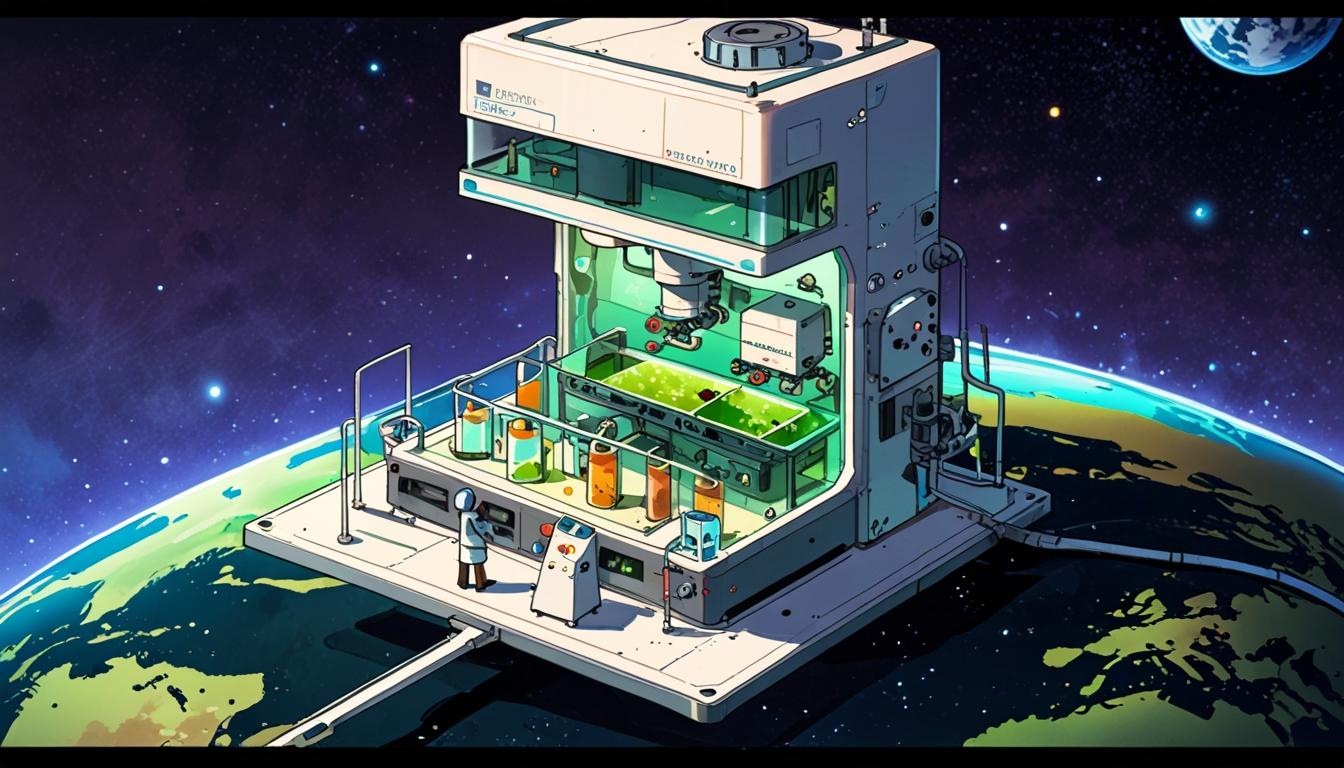A team of scientists and industry partners has launched a miniature laboratory carrying microbes designed to produce edible proteins into Earth's orbit, marking a step forward in developing sustainable food production for space missions. The lab, which contains yeast microbes capable of precision fermentation, aims to explore the feasibility of generating food, pharmaceuticals, fuel, and bioplastics in the microgravity environment of space.
The experiment was launched aboard Europe's first commercial returnable spacecraft, Phoenix, via a SpaceX flight on Monday 21 April at 20:48 Eastern Time (Tuesday 22 April at 01:48 British Summer Time). The project brings together expertise from Imperial College London's Department of Bioengineering, Cranfield University, and the companies Frontier Space and ATMOS Space Cargo.
Dr Rodrigo Ledesma-Amaro of Imperial College, who is leading the scientific research from the Bezos Centre for Sustainable Protein and Microbial Food Hub, said the collaboration draws on a unique blend of academic and industrial knowledge in physics, engineering, biotechnology, and space science. "We dream about a future where humanity heads off into the dark expanses of space. But carrying enough to feed ourselves on the journey and at our destination would be unimaginable in cost and weight," he explained. "If just a handful of cultivated cells could provide all our food, pharmaceuticals, fuels and bioplastics using freely available resources, that would bring the future closer."
The miniature lab is fully automated and will remain in orbit before returning to Earth, allowing researchers to analyse how microgravity and the space environment affect microbial activity, long-term storage, and transport. This will provide critical data for the development of space-based biomanufacturing systems.
Aqeel Shamsul, Chief Executive Officer of Frontier Space, described the mission as "a major milestone in democratizing access to space research." He highlighted that Frontier’s SpaceLab Mark 1 'lab-in-a-box' technology now enables complex experiments in microgravity without the typical obstacles of space-based research. "This project represents a significant opportunity to mature Frontier’s technology, providing bio-experimentation solutions for space environments with the future space infrastructure post International Space Station," he said.
The initiative comes amid growing interest in developing self-sustaining systems for long-duration space missions, where resupplying from Earth is costly and impractical. Estimates suggest feeding each astronaut daily can cost as much as £20,000 due to the weight and volume of supplies like food, water, and fuel. Using microbes such as yeasts engineered for precision fermentation offers a potential solution by producing essential materials on-site in space.
The data gathered from this experiment is expected to accelerate advances in space manufacturing, pharmaceutical research, and the production of sustainable foods for prolonged human presence in space. The collaboration underscores an emerging intersection of biotechnology and space exploration aimed at enabling future deep-space travel and habitation.
Source: Noah Wire Services
